In this article
Fleas are an annoying part of cat ownership. Unfortunately, your cat will likely get at least one flea infestation at some point during their life. Keeping on top of regular flea treatments should protect your kitty from harm even if a flea decides to hitch a ride on them. However, when they get a heavy flea infestation, it can seriously threaten their health and even kill a cat if enough fleas are present.
Fleas can kill cats in a few ways, but the most common method is via flea anemia. In other words, the fleas consume too much blood for the cat to survive. Keep in mind, though, that only heavy infestations are likely to cause this.
One or two fleas are unlikely to cause anemia in an otherwise healthy adult cat. Small, young kittens or sick cats usually suffer from flea anemia the most, but it’s not unheard of in adults if they have enough fleas.

The 3 Ways Fleas Can Kill Cats
The most common way fleas can kill cats is anemia caused by a heavy flea burden, but there is a pathogen that fleas can pass on to cats through bites, which also causes anemia. Mycoplasma haemofelis is a bacterium that is spread by biting insects like fleas and ticks. Alarmingly, fleas can also spread the plague, which is the most serious (if rare) flea-borne infection.
1. Mycoplasma
Mycoplasma will enter a cat’s bloodstream when the fleas are accidentally eaten by the cat, when flea dirt (flea poop) comes into contact with an open wound on the cat’s skin, or when the flea bites them.
Mycoplasma bacteria will attach themselves to the surfaces of the cat’s red blood cells. Some mycoplasma species end up embedded in the cell and can cause it to lose its bi-concave shape. This means the blood cells can no longer carry oxygen around the body. When the cat’s immune system notices these misshapen red blood cells, they are destroyed, leading to severe anemia.
Mycoplasma is most dangerous to kittens (which can also inherit the infection from their mothers), older felines, or ones with other illnesses or infections. Cats with feline immunodeficiency virus (FIV) or feline leukemia virus (FeLV) are commonly infected with Mycoplasma haemofelis and often get very sick.
The disease caused by Mycoplasma is called feline hemotrophic mycoplasmosis (FHM) and is usually mild. However, FHM can be much more serious and even fatal in cats.
- Anemia
- Lethargy
- Breathing problems
- Increased heart rate
- Enlargement of the spleen
- Swollen lymph nodes
- Fever
- Jaundice
The treatment of FHM can vary from case to case. In most cases, antibiotics can be prescribed to treat the infection. In severe cases, blood transfusions to treat the anemia are needed. Vets might also do other tests to observe how the organs are functioning, and a cat with FHM will often be tested for FIV and FeLV at the same time.
If you are concerned about the health and well-being of your pet, seek veterinary advice for the best course of action.
If you need to speak with a vet but can't get to one, head over to PangoVet. It's an online service where you can talk to a vet online and get the advice you need for your pet — all at an affordable price!

2. Flea Anemia
Flea anemia is a condition caused by a severe flea infestation. When a cat is a host to a flea infestation, they will have their blood sucked from their body by the pests. In healthy adult cats, even a heavy infestation is unlikely to kill them. However, in cats that are unwell, underweight, or very young/old, flea anemia can be fatal. In kittens, flea anemia is widespread and particularly dangerous; kittens under 4 weeks old are particularly vulnerable.
When a flea jumps on a kitten, it’ll feed for around an hour and use its strong sucking mouthparts to take blood directly from a blood vessel in the skin. Adult female fleas can drink around 7 microliters of blood daily, and cats can theoretically be home to over 200 fleas. So if a 3-month-old kitten has 50 fleas living on them ( a heavy infestation), they will lose 0.35ml of blood to the fleas a day!
When a cat loses enough blood, anemia will occur. The cat won’t have enough red blood cells circulating in their body, and the red blood cells still present can be smaller and less effective at carrying oxygen.
- Pale gums
- Increased heart rate
- Lethargy
- Breathlessness
- Weakness
- Collapse
- Lack of appetite
- Weight loss
The treatment for flea anemia depends on the cat’s age and how severe it is, but most of the time, treatment will involve fluid therapy and potentially, blood transfusions to replace lost red blood cells—alongside removing the fleas, of course!
3. Plague
While the plague sounds like a disease long forgotten in history, it’s present in the western United States and can be spread by cat fleas. Cats can contract most types of the plague, but the most common is the bubonic plague.
This disease is caused by the Yersinia pestis bacteria and can be spread by fleas. Cats with bubonic plague commonly have enlarged lymph nodes, which can be abscessed and draining. The plague progresses rapidly and can be fatal if not treated promptly, with around 60% of cats dying if not treated.
- Ulcers in the mouth
- Abscesses on the skin
- Eye discharge
- Diarrhea
- Vomiting
The treatment is usually antibiotics, but care should be taken when treating a cat with the plague. It is a zoonotic disease that can be spread to humans. Fleas infected with the plague bacteria can bite humans.
The flea will drink the infected blood of a mammal (usually a rodent) and ingest the bacteria. This bacteria then blocks the flea’s digestive system. So, when the flea jumps onto a cat (or human) and tries to feed, it will regurgitate bacteria into the animal.
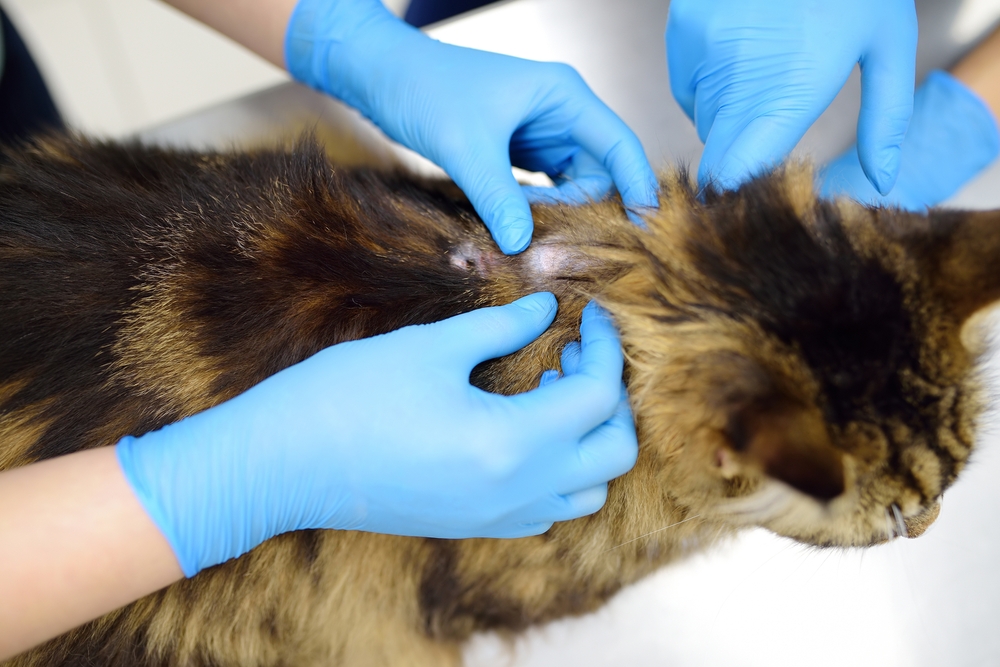

How Can I Protect My Cat From Fleas?
Please be aware that certain dog flea products on the market are based on compounds called pyrethrins, which are highly toxic to cats. Take special precautions, use only cat-specific anti-flea products on your cat, and follow the manufacturer’s instructions carefully. The site, dosage, and frequency of application should never be exceeded. If you have a multiple-cat household, it is recommended to keep your cats separate to avoid the ingestion of toxic chemicals via allogrooming. Always consult with your veterinarian before applying any treatment to your cat. Do not allow your pets to swim in lakes or the ocean after the pyrethrin treatment application. Never use a pyrethrin-based product in the same room where you keep a fish tank. Use gloves and keep away from children. Kindly dispose of the bottles considering safety precautions.
The key to protecting your cat from fleas (and the nasty diseases they spread) is preventing them from taking hold of your cat or in your home. Cats should be treated with a prescription flea treatment at regular intervals that vary depending on geographical location; your veterinarian can tell you how often your cat needs treatment.
Treatment can be in the form of a topical medicine on the skin at the back of the neck or via a pill. Flea collars can also be effective if prescription-strength, but be wary of “drug store” products, as they often lack effectiveness.
Treating your home is also periodically needed, especially if you have a yard or your cat goes outside. Treatment with a spray containing an insect growth regulator is suitable, and the effects last a long time. If you use sprays, foggers, or powder in your home, be very careful always to remove your pets from the house before treatment. For example, pyrethrin is very toxic to cats, so never spray anything containing pyrethrin around them.
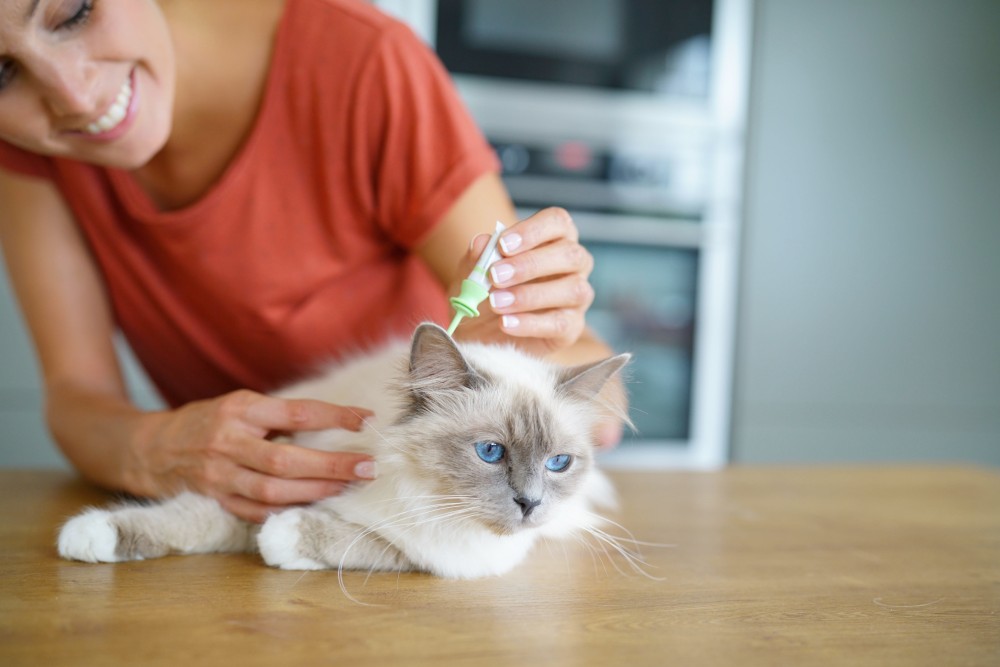

Final Thoughts
Unfortunately, fleas can kill cats in multiple ways. There are several diseases that fleas can spread to our feline friends, but the ones we listed, such as Mycoplasma haemofelis and the plague, are the most dangerous. The fleas can also kill kittens, elderly cats, and those that are sick or have medical problems can develop flea anemia if infested.
Finally, since cat fleas also bite humans, some diseases they carry can infect pet owners. The best way to protect your cat and your family from fleas and their diseases is to use effective flea prevention on your cat year-round and to treat your home periodically as a preventative measure.
Featured Image Credit: Maja Marjanovic, Shutterstock




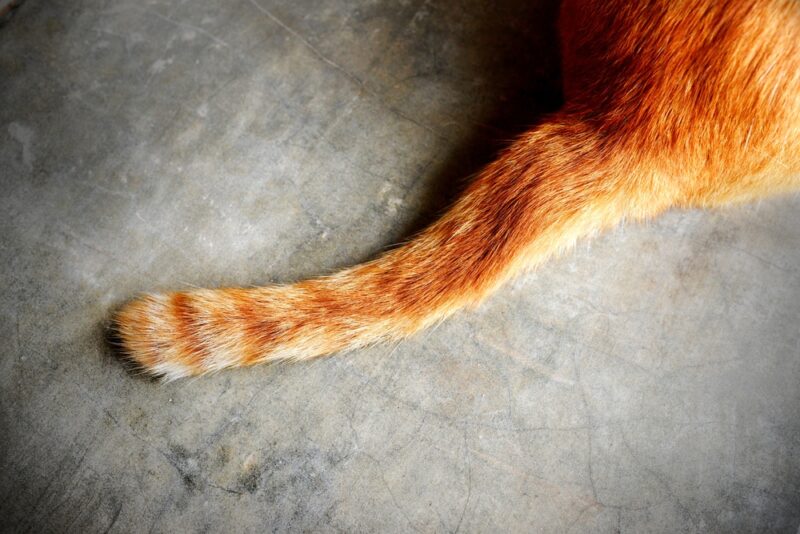
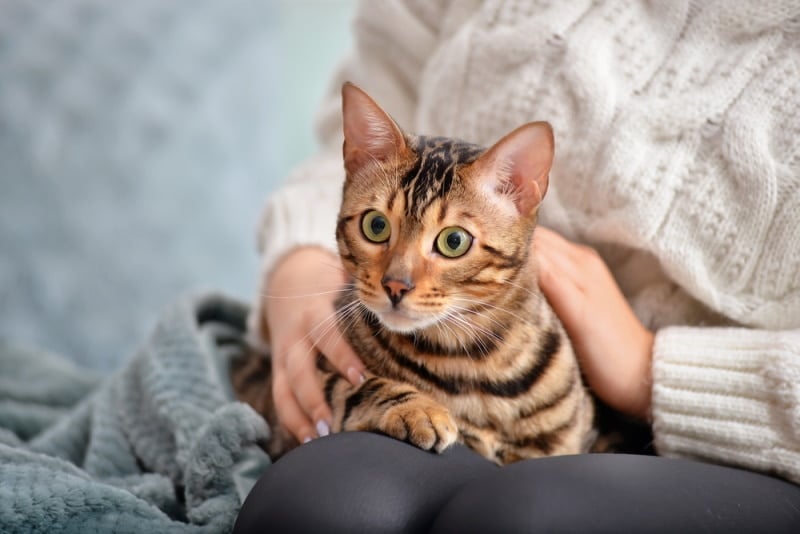
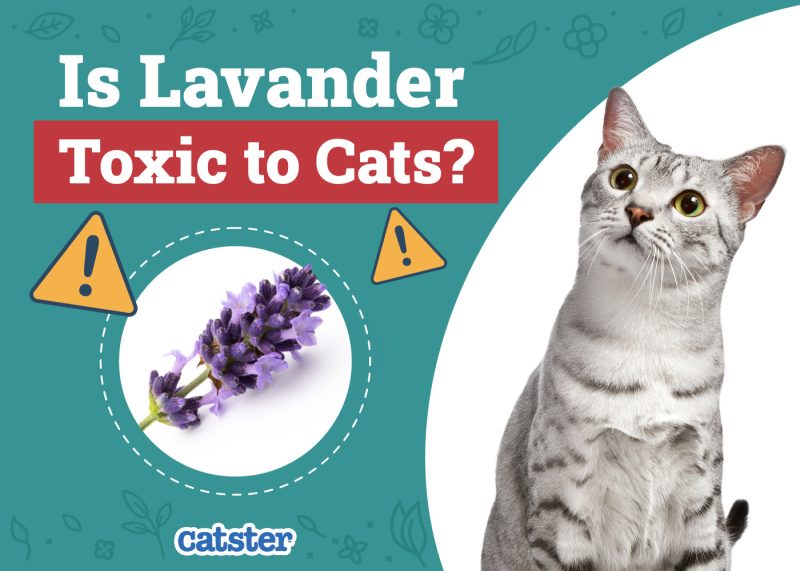
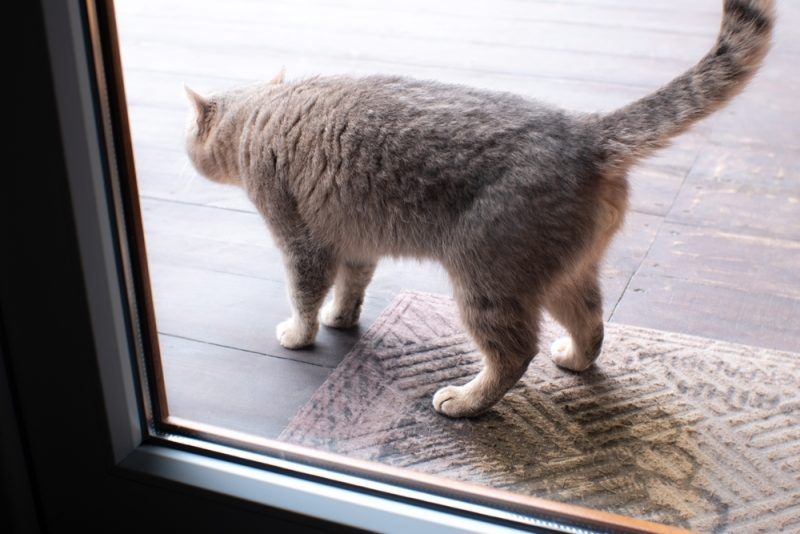
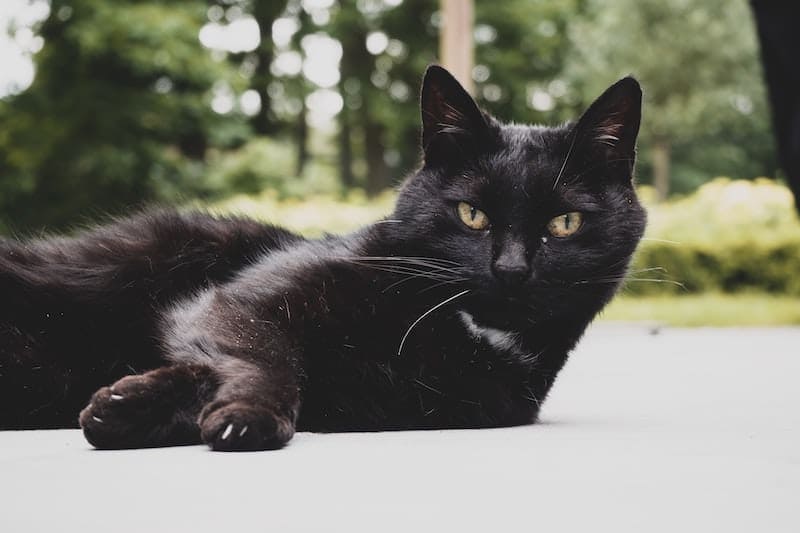
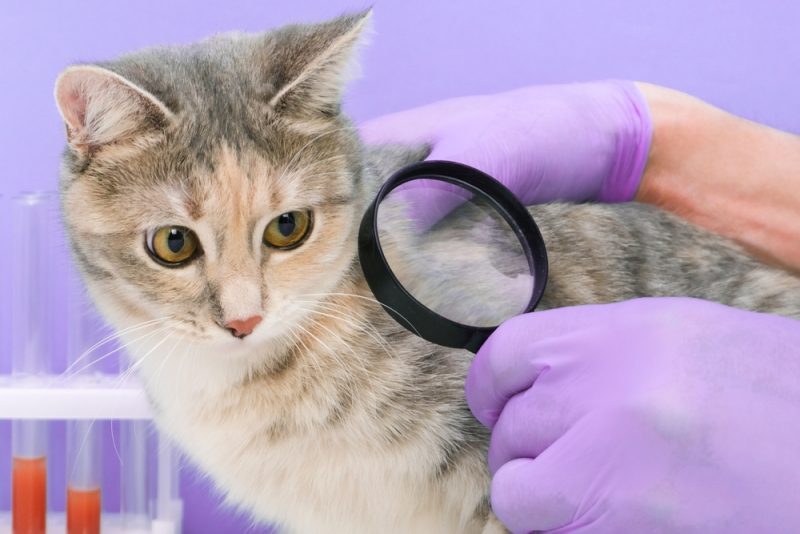
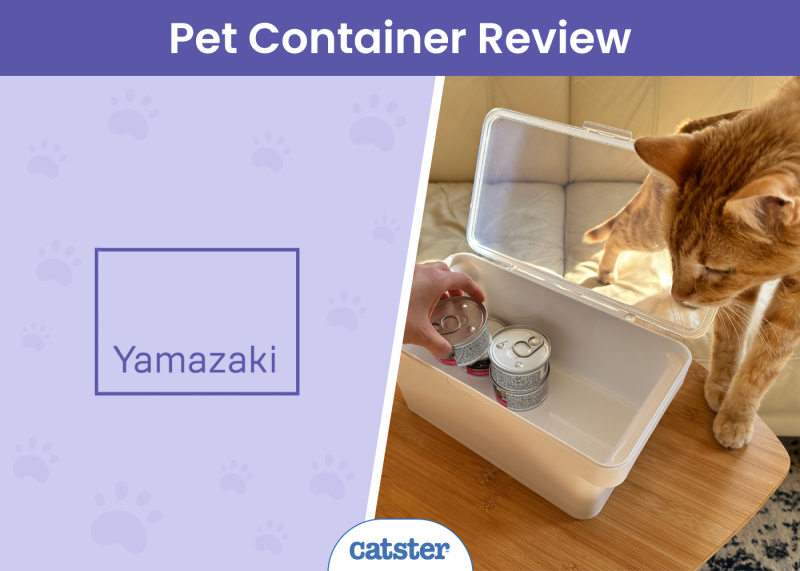

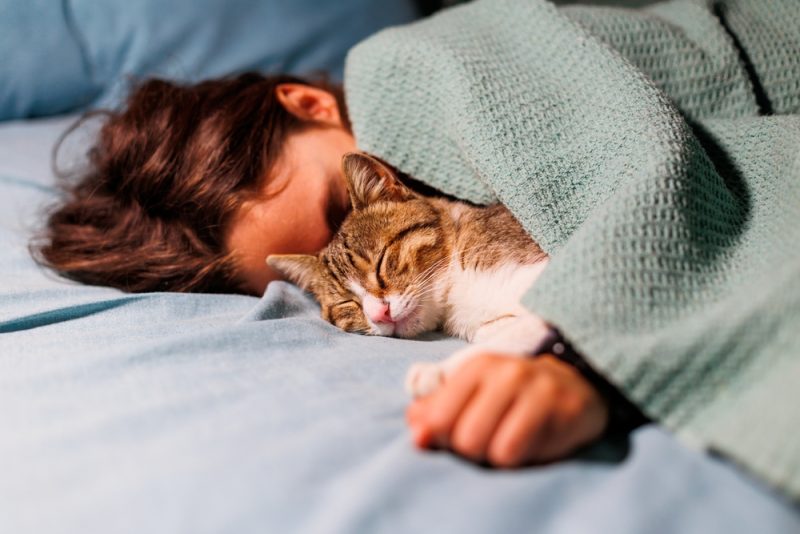

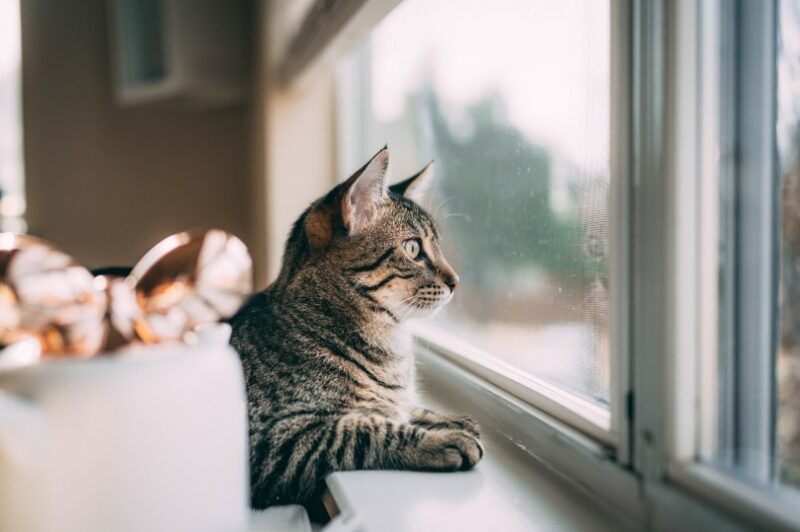

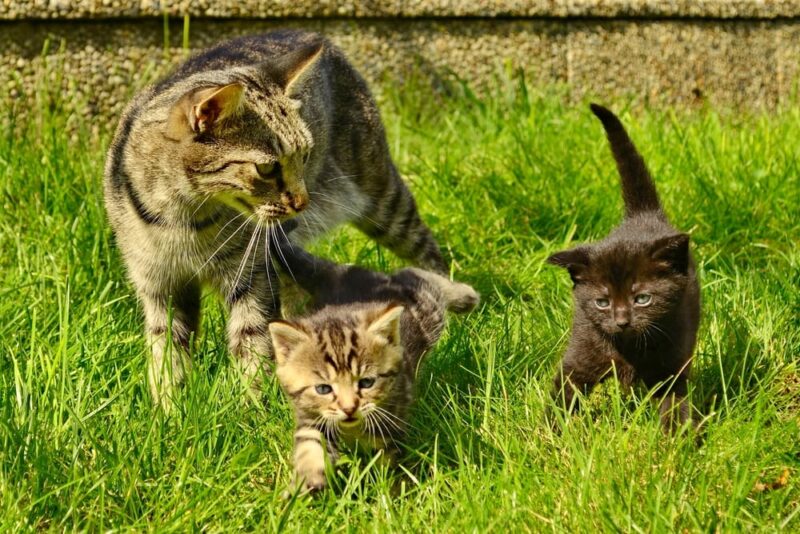
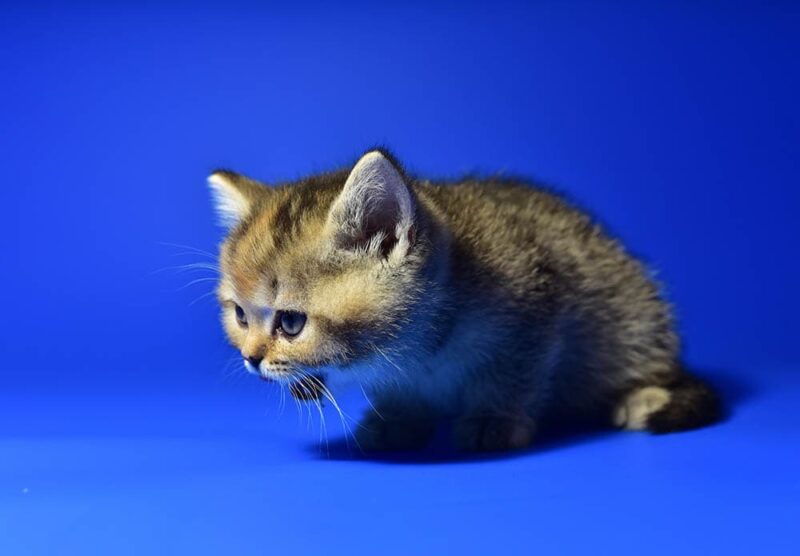
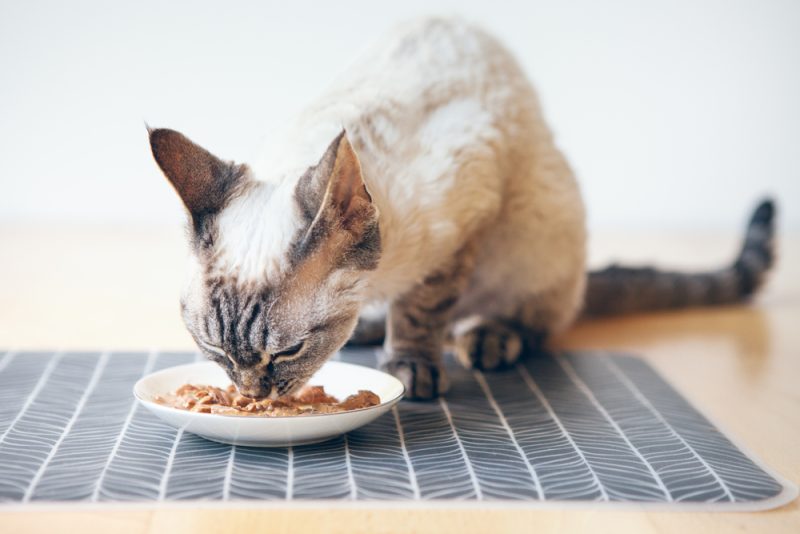

2 Responses
How quickly can fleas kill a healthy, adult cat with anemia ?
Dear Naomi,
Thank you for your question. As mentioned in the post, the possibility of fleas killing a healthy adult cat is highly unlikely. The flea infestation would have to be extremely severe.
However, for the sake of your question, let's say that a particular adult cat with 171ml of blood would be infested by 200 fleas. Those 200 fleas could suck 1.4ml of blood a day. The blood loss for cat could get fatal when losing 30% – 40% of blood. So hypothetically in this cat's case it would take fleas 40+ days to suck enough blood for a cat to be in risk of dying.
Please keep in mind that this information is purely a hypothetical example to answer your question. Please, never allow a cat to live with a flea infestation, it is unnecessary, anti-hygienic, dangerous, and very uncomfortable for them.